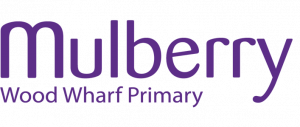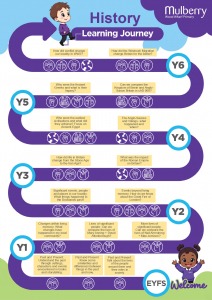Curriculum intent
The curriculum is ambitious, broad and balanced, tailored to the needs of Mulberry Wood Wharf Primary’s community. It is consistent with the fully inclusive, aspirational vision of the Mulberry Schools Trust and focused on outstanding achievement for all. Mulberry Wood Wharf Primary will be an educational environment in which all pupils will become accomplished and confident with the skills and aspirations to move to each phase of their education from early years to primary, on to secondary and into higher education, training or employment at age 19.
-
It is our intent to equip all children in our care with the knowledge they will need to be successful citizens as well as ensure they are ready for secondary school. We recognise that the curriculum at Mulberry Wood Wharf needs to allow the children to have as wide an understanding of the world as possible, as well as a depth of knowledge to ensure critical thinking. We want all children to consistently demonstrate the school’s values and so each term a value is reflected on in depth with the aim of the children independently applying them to their own lives. Each termly unit, has been designed to start with the child’s context, move on to reflect the wider world and then return back to the child’s own opinions and individual reflection on their place in society.
-
We base our curriculum on our duty to address issues of community cohesion, responsibility and respect however difficult they may seem. In light of this, the curriculum is designed to ensure high standards of attainment and promote British values with an emphasis on respect and tolerance of those with different faiths and beliefs, ethnicities and socio-economic backgrounds. This includes themes which challenge prejudice and stereotyping.
-
We believe learning should be a continual process with opportunities for children to revisit knowledge and deepen their understanding of critical areas. High standards are best secured when essential knowledge is learned through direct high quality subject teaching and is then applied to real-life contexts. Knowledge will be taught and developed through the curriculum content and revisited to ensure that it has been learnt (i.e. stored in the child’s long-term memory). The curriculum must be rigorous enough to guarantee progress for all children in the academic subjects as well as personal and social development.
-
At the core of our curriculum are our school values. These values ensure that all children are equipped with the thinking skills they will need to be successful in their education beyond Mulberry Wood Wharf and also in their adult lives.



